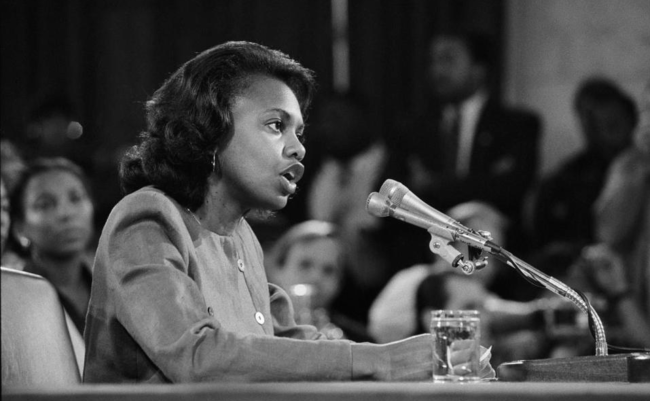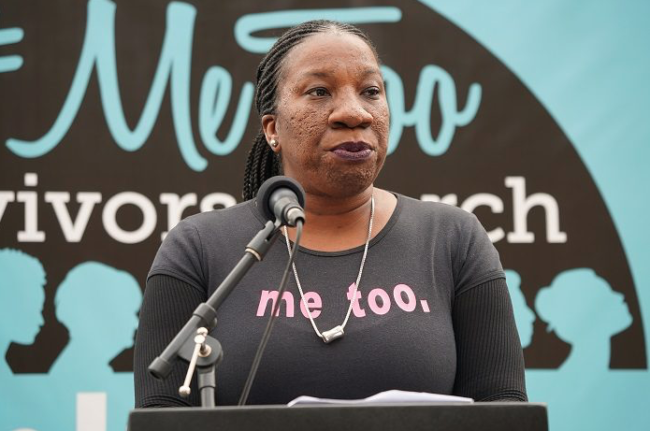By AnnaMarie Houlis via Fairygodboss
GirlTalkHQ, February 27, 2018 —

Sexual harassment in the workplace is a pervasive problem plaguing workplaces across all industries, not just in Silicon Valley or Hollywood. A recent poll of over 200,000 workers by Comparably revealed that 26 percent of women say they’ve been sexually harassed at work — and young black women get the brunt of all types of harassment. But their voices are largely left unheard.
The Comparably poll found that a notable 33 percent of female executives and engineers, 28 percent of women in tech and 34 percent of women in IT say they’ve been sexually harassed at work. In fact, 61 percent of women in IT say that being a woman has even held them back in their careers.
When it comes to verbal abuse and non-sexual harassment from bosses, both women (24 percent) and men (21 percent) say they’ve been harassed — 30 percent of all workers between 18 and 25 years old experience this type of harassment from higher-ups, but the biggest victims are women in communications (40 percent) and men in finance (35 percent).
For workers of color, however, harassment hits harder. According to the Comparably poll, 23 percent of African-Americans say they have been sexually harassed at work, followed by 20 percent of Latinx workers. Thirty-three percent of African-Americans reported verbal abuse or non-sexual harassment from bosses, too.
This is nothing new, though. A 2009 study published in the Journal of Interpersonal Violence found that minorities experience the highest levels of harassment and discrimination in the workplace, and another paper found that black women are more likely to report post-traumatic stress disorder symptoms than their white peers following harassment and assault.

For example, according to the Center for American Progress, industries that disproportionately employ women of color in low-wage jobs report some of the highest levels of sexual harassment. A 2016 study on workplace harassment in the fast food industry that 33 percent of black women and 32 percent of Latinas in fast-food restaurants experience sexual harassment, compared to 25 percent of white women. Likewise, according to a 2008 study, home healthcare workers, who are heavily women of color, are subject to exploitation (like assault and rape) and instability. But women of color and recent immigrants often find reporting abuse or seeking legal protection too risky.
Of course, sharing these statistics is not to discount the experiences of white women; rather, it’s to exemplify just how much women of color are adversely affected. Their experiences have been largely left out of the conversation surrounding workplace harassment, despite mounting evidence that they face disproportionately high levels of sexual violence in general. They have been relegated to the sidelines, but intersectional feminism is the missing ingredient we need to create change.
“Though the #MeToo movement has made clear the insidiousness and prevalence of sexual harassment and assault, it has also been centered mostly on the experiences of white, affluent, and educated women,” explained The Atlantic writer Gillian White in her aptly titled piece, “The Glaring Blind Spot of the ‘Met Too’ Movement.”
The Nation writer Collier Meyerson also begged the question, “Can we all say #MeToo?” Meyerson explained that missing from the bulk of the conversations around rape culture are all people on the margins — women of color, poor women, undocumented women and trans men and women who are uniquely impacted by sexual assault and harassment. She wrote, “To effectively combat sexual harassment, we must understand how a survivor’s identity shapes his or her ability to tell a boss, sue a company, or even join the hashtag #MeToo.”

More recently, Vox writer P.R. Lockhart has pointed out that women of color shaped sexual harassment policy, and now they’re more likely to slip through its cracks. In fact, #MeToo was started by a black woman a decade ago. Activist and founder of youth organization Just Be Inc., Tarana Burke, launched the movement as a way to connect with survivors. Alas, after actress Alyssa Milano tweeted a call-out for followers to share their stories of sexual harassment and assault using #MeToo, many media outlets credited her for originating the movement.
Milano did tweet that she was “made aware of an earlier #MeToo movement” and linked to Burke’s story, but the point is that the mass media didn’t think of it first. Burke’s story was forgotten, rendering it irrelevant to the conversation until someone pointed out that a black woman said it first.
Lockhart warned, “Seeking systemic change in how we deal with workplace sexual harassment without acknowledging these groups threatens to keep progress limited to a subset of women, perpetuating a system in which minorities, especially poor women of color, are left without many options.”
Fortunately, despite their experiences, the majority of women that Comparably surveyed (63 percent) believe the #TimesUp movement will lead to progress in the workplace. Sixty-five percent of African-Americans of all genders and 68 percent of Latinx workers agree that times are changing.

A version of this post previously appeared on Fairygodboss, a leading career community that helps women get the inside scoop on pay, corporate culture, benefits, and work flexibility.
Author AnnaMarie Houlis is a multimedia journalist and an adventure aficionado with a keen cultural curiosity and an affinity for solo travel. She’s an editor by day and a travel blogger at HerReport.org by night.










